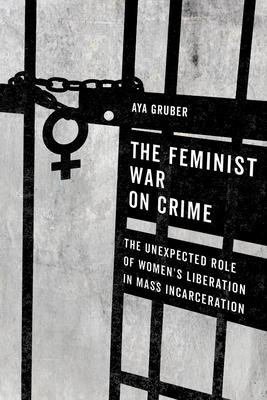Many feminists grapple with the problem of hyper-incarceration in the United States, and yet commentators on gender crime continue to assert that criminal law is not tough enough. This punitive impulse, prominent legal scholar Aya Gruber argues, is dangerous and counterproductive. In their quest to secure women's protection from domestic violence and rape, American feminists have become soldiers in the war on crime by emphasizing white female victimhood, expanding the power of police and prosecutors, touting the problem-solving power of incarceration, and diverting resources toward law enforcement and away from marginalized communities.
Deploying vivid cases and unflinching analysis, The Feminist War on Crime documents the failure of the state to combat sexual and domestic violence through law and punishment. Zero-tolerance anti-violence law and policy tend to make women less safe and more fragile. Mandatory arrests, no-drop prosecutions, forced separation, and incarceration embroil poor women of color in a criminal justice system that is historically hostile to them. This carceral approach exacerbates social inequalities by diverting more power and resources toward a fundamentally flawed criminal justice system, further harming victims, perpetrators, and communities alike.
In order to reverse this troubling course, Gruber contends that we must abandon the conventional feminist wisdom, fight violence against women without reinforcing the American prison state, and use criminalization as a technique of last--not first--resort.
